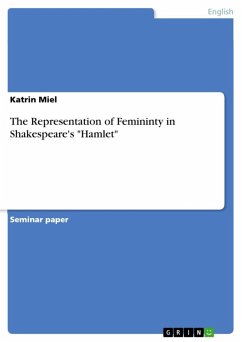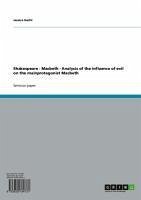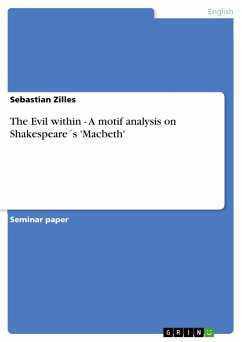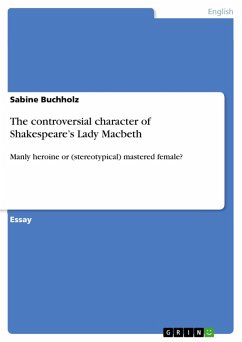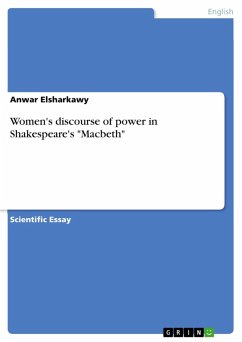Essay from the year 2014 in the subject English Language and Literature Studies - Literature, grade: 1,3, University of Potsdam (Institut für Anglistik/Amerikanistik), course: Shakespeare's Tragedies II, language: English, abstract: "So foul and fair a day I have not seen" (Shakespeare Act I, Scene 3, l. 38) . These words mentioned by Macbeth, the main protagonist of the corresponding tragedy, echo one of the main themes of the whole play: nothing is as it seems to be. This central topic also arises in other tragedies by William Shakespeare. In "Macbeth", this motive appears in a much stronger way. This tragedy tells the journey of a former loyal and shining hero, who evolves into the center of evil. "Macbeth" is considered as one of the most sinister tragedies of William Shakespeare. From the beginning on, the setting is depicted as a world full of nightmares, darkness, murder and treason. The play is constituted in a barren landscape, considered as a reference to hell. Most of the events happen during the nighttime, which supports this sinister impression. Some of the attempts that were made to analyze Macbeth, describe him as pure evil and a tyrant. A psychopath, who merciless defends his position as a king by killing every possible opponent who crosses his path. Other interpretations draw him as a victim, torn between the question of what is right and what is wrong and influenced by the evil that surrounds him. How can a man, who is firstly described as a hero and a loyal subject change in such a dramatic way? Which path does he take to become such a criminal individual like he mostly is described? What changes happen within his mind? These questions about the character development or in other words, the development of the evil within Macbeth are the core of this paper. In this research, the Reclam version of Shakespeare's "Macbeth", published 2011 in Ditzingen, Germany, is used.
Dieser Download kann aus rechtlichen Gründen nur mit Rechnungsadresse in A, B, BG, CY, CZ, D, DK, EW, E, FIN, F, GR, HR, H, IRL, I, LT, L, LR, M, NL, PL, P, R, S, SLO, SK ausgeliefert werden.




